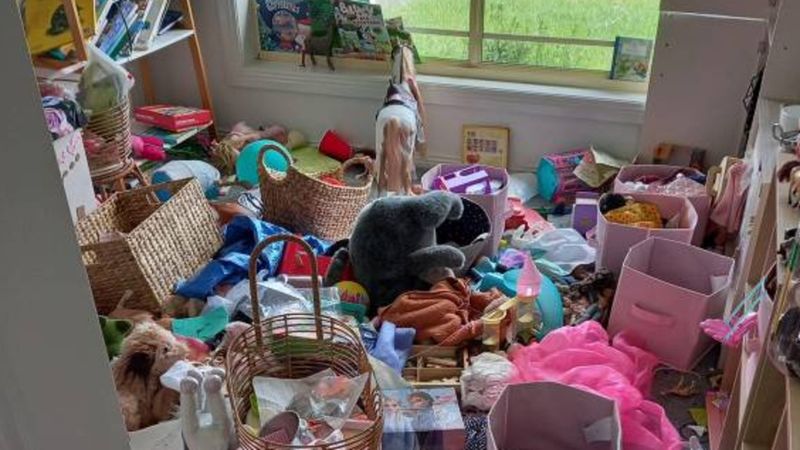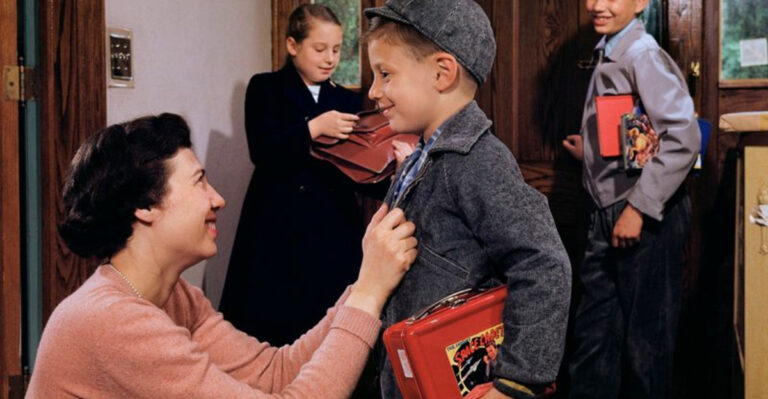15 Signs You’ve Raised a Spoiled Child and What to Do About It (Without Losing Your Mind)
Let’s just say it: spoiled isn’t a dirty word—it’s a reality check. And every parent, at some point, secretly wonders, “Wait… did I create a tiny dictator with an iPad and a snack obsession?” You give them love. You work hard. You say “yes” to avoid meltdowns.
And before you know it? You’re negotiating with a five-year-old who just called your homemade dinner “disgusting” and wants sushi delivered instead. The good news? It’s fixable.
Being spoiled isn’t a permanent condition—it’s a pattern. And patterns can be changed. Here are 15 signs your kid might be running the show (for now)—and how to gently reclaim the remote control.
1. The Reward Trap: Basic Tasks Come at a Price

Ever felt like you’re living in a never-ending episode of Let’s Make a Deal? If your child expects a parade and a cookie just for brushing their teeth or putting shoes on, you might have entered the reward trap.
Motivation should come from inside, but some kids become tiny negotiators. Suddenly, what should be simple routines turn into high-stakes transactions. And when the rewards keep flowing, the expectations only grow.
To pull back, start praising effort, not just results. Acknowledge that responsibility is part of being in the family. Sometimes, the best reward is a proud smile—and knowing they did the right thing, even without an audience.
2. Hostage Negotiations: The Meltdown Master

There’s nothing quite like a full-volume meltdown—for saying “no” to a second cookie. If every boundary sets off drama worthy of an Oscar, your child may have learned that emotional chaos brings results.
It’s easy to give in for peace and quiet, but those little power struggles add up. Kids quickly sense when noise equals negotiation.
Stay calm and keep your boundaries, even with an audience. Consistency teaches that your “no” isn’t just background noise. Remember, tantrums pass. Your cool, steady response is what sticks.
3. Empathy on Vacation: The Missing Feeling

Ever had your child giggle when their sibling is upset or roll their eyes when you’re stressed? That’s empathy playing hooky—and it’s pretty common in spoiled behavior.
When kids don’t practice understanding others’ feelings, entitlement can settle in fast. Sometimes it’s just immaturity, but constant lack of empathy is a red flag.
Model kindness by talking out feelings: “How would you feel if that happened to you?” Encourage small moments of care. Empathy isn’t innate for everyone, but it absolutely grows with practice—and a little nudge from you.
4. The “Never Enough” Syndrome: Comparison Overload

Remember when a new toy brought a week of joy? Now, it’s barely unwrapped before your child wants the next thing. Some kids treat blessings like a to-do list—always searching for the next, bigger thrill.
Comparison is the thief of joy, and it’s a sneaky visitor in childhood. When nothing ever seems satisfying, gratitude exits stage left.
Start a “three thankfuls” ritual at dinner. Point out abundance in small ways. Over time, the habit of appreciating what’s already here will start to crowd out those constant comparisons.
5. Sass Factory: Disrespect as Default

“Excuse me, who’s paying bills here?” When your child flips the attitude switch or treats adults like peers (or worse), it’s more than just playful sass. It can signal that respect boundaries are blurry.
A little personality is fun, but regular backtalk or demands spell trouble. You want them confident, not condescending.
Set the bar for respect high, and hold it steady. Correct gently but firmly, and remember—you’re shaping how they’ll treat all authority in life. You’re the grown-up, and yes, that matters.
6. Boredom Blues: Needing Constant Entertainment

Ever heard, “I’m bored,” five minutes after an activity ends? Some kids act like it’s everyone else’s job to keep their schedule exciting. When boredom is met with pouting or demands for screens, it’s a warning sign.
Here’s the truth: Boredom isn’t the enemy. It’s actually the birthplace of creativity, even if it comes with a dramatic sigh.
Resist the urge to fill every moment. Let them sit with nothing to do. Often, the spark of imagination flickers once they realize you’re not the entertainment committee.
7. Disposable Attitude: No Value for Things

Lost backpacks, trashed toys, and zero apology? If your child treats possessions like they’re endlessly replaceable, appreciation is likely in short supply.
Stuff costs money, time, and care to provide. When kids don’t connect those dots, entitlement creeps in.
Tie privileges to responsibility. Make them part of the clean-up and replacement process. The lesson: Taking care of things (and being grateful for them) matters, both for your wallet and their character.
8. Sharing is a Foreign Language

Sharing shouldn’t feel like a competitive sport, but for some kids, it’s a big ask. If your child reacts to sharing like you’ve suggested giving away a kidney, selfishness might be at play.
The world’s full of opportunities to share, so it’s a skill worth building. Praise small attempts, even if the effort is clumsy.
Use “we” language at home. Share stories of taking turns and why it matters. The goal isn’t perfection—it’s progress toward less “mine” and more “ours.”
9. Public Meltdown Maestro

Public tantrums are a whole vibe—and not the one you want. If your child regularly stages epic scenes in stores or restaurants, they’ve figured out that an audience turns up the heat.
Embarrassment makes us want to cave, but that’s exactly why the show goes on. Kids quickly learn what works.
Stand your ground, no matter how many people glance over. Calm consistency is key. You’re showing your child that boundaries don’t disappear just because you’re not at home.
10. Tiny Guilt Tripper: Manipulation in Action

“If you really loved me, you’d buy it.” Sound familiar? Kids are shockingly good at pushing emotional buttons, and guilt is a favorite tool.
They might use tears or even throw out the “worst mom ever” line. It stings, but giving in only teaches them exactly what works.
Stick to your “no,” no matter how persuasive the performance. Later, talk about feelings and honest communication. The lesson: Love isn’t measured by treats or toys, and guilt has no place in family negotiations.
11. Hands-Free Household: Chore Avoidance

Do you ever feel like the only one working while your child lounges like royalty? If your kid avoids every chore like it’s a contagious disease, freeloading could be in the cards.
Helping out shouldn’t be optional. Chores teach that everyone contributes, no matter their age or attitude.
Assign tasks suited for their age. Make helping normal, not a punishment. It’s part of being a family—and not just your job alone to keep things running smoothly.
12. Luxury Life on Demand: Entitled Expectations

Turning their nose up at store-brand cereal? Pouting over not getting the latest gadget? If your child expects luxury as standard, reality checks are overdue.
It’s tempting to indulge, but kids can start believing that special treatment is their birthright. That’s tough to un-teach later.
Start talking about earning, not just getting. Discuss budgets, and make sure “needs” and “wants” are clear. They’ll learn that life isn’t always top-shelf—and that’s OK.
13. Blame Game Champion

Some kids treat accountability like a game of hot potato—throwing blame at everyone but themselves. If your child never owns up to mistakes, growth is on pause.
Mistakes are part of learning, but dodging responsibility means missing out on big lessons. No one likes being called out, but growth never comes from finger-pointing.
Ask them to reflect: “What part did you play?” Model owning your own mistakes, too. Accountability is a muscle, and the more it’s used, the stronger it gets.
14. VIP Treatment: The World Revolves Around Me

If your kid thinks every meal, seat, and situation should be customized for them alone, you’re not imagining things. Special requests are fine—constant demands are not.
Letting them always have their way sets up disappointment outside your home. Life doesn’t adjust for one person’s preferences.
Encourage flexibility. Sometimes, “This is what’s for dinner” is the most loving answer you can give. They’ll thank you later (probably).
15. Exhausted Parent Olympics: Trying to Keep the Peace

If parenting feels like a never-ending performance, you’re not alone. Trying to keep your child happy at all costs is an exhausting job—and one you can’t win.
People-pleasing only leads to more demands and less satisfaction (for both of you). It’s okay to step back and let your child handle a little discomfort.
Set limits for your own sanity. You’re here to raise a resilient kid, not an always-happy one. Boundaries aren’t mean—they’re loving.







